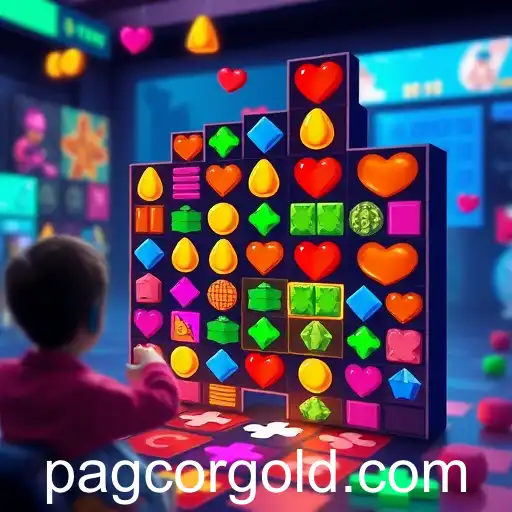Puzzle games have long been a staple in the gaming industry, known for their ability to challenge the mind and provide hours of entertainment. From classic board games like chess and Sudoku to digital iterations like Candy Crush and Monument Valley, the appeal of puzzle games spans generations and demographics. In the Philippines, the gaming industry is significantly regulated by the Philippine Amusement and Gaming Corporation (PAGCOR), which ensures fair play and responsible gaming while promoting the growth and development of the gaming sector.
PAGCOR's regulation helps maintain a balanced ecosystem where both traditional and online gaming entities can thrive. In this context, digital puzzle games have seen a surge in popularity, fueled by the accessibility provided by smartphones and the internet. These games offer players a unique blend of entertainment and mental exercise, allowing users to engage in problem-solving, pattern recognition, and strategic thinking. The rise of mobile gaming has particularly fueled this category, with developers continually pushing the boundaries to create innovative and immersive experiences.
One of the driving factors behind the success of puzzle games under PAGCOR's supervision is their broad appeal. Unlike other gaming categories that may target specific age groups or interests, puzzle games often attract a diverse audience. They are known for their low entry barriers, both in terms of cost and complexity, making them accessible to a wide range of players. This inclusivity is further supported by the educational and cognitive benefits associated with playing these games, such as improved memory, concentration, and analytical skills.
Moreover, the flexible nature of puzzle games allows them to thrive in a competitive marketplace. Developers often incorporate compelling narratives and visually appealing aesthetics to enhance the player experience, and the incorporation of social elements such as leaderboards and multiplayer modes has further increased engagement and retention. In a time where social connectivity plays an essential role in gaming, puzzle games balance competition and collaboration, often fostering community interaction through online platforms.
Despite the challenges posed by a highly regulated environment, the adaptability of puzzle games positions them well within PAGCOR's framework. As technology continues to evolve, the future of puzzle games appears promising, with emerging trends like virtual reality and augmented reality offering new dimensions of gameplay. As both seasoned gamers and newcomers continue to seek games that offer mental stimulation and relaxation, puzzle games remain a powerful genre that adapts to the ever-changing landscape of digital entertainment.

Puzzle games have carved out a distinct niche in the gaming industry, appealing to a wide audience for their engaging challenges and cognitive benefits. With the PAGCOR's role in regulating gaming activities, this article examines the influence and reach of puzzle games in an increasingly digital and regulated marketplace.




